![The ‘Women Of Marvel’ Panel: The Antidote To Corporate Comic Con Buzz [NYCC 2012]](http://townsquare.media/site/622/files/2012/10/untitled-1-1351214517.jpg?w=980&q=75)
The ‘Women Of Marvel’ Panel: The Antidote To Corporate Comic Con Buzz [NYCC 2012]

I've been to a lot of Marvel Comics conventions panels this year. Only three major conventions -- San Diego's Comic-Con Internation, Toronto's Fan Expo, and the New York Comic Con -- but a lot of Marvel panels. They're usually boisterous affairs full of good humor and happy hucksterism. Occasionally the company's former Editor-in-Chief and current Chief Creative OfficerJoe Quesada insists on shouting into a microphone, and that is not OK (and I may never recover), but as roadshow sales pitches go they're usually very entertaining.
But these presentations are never as good as the Women of Marvel panel. Taking place on Sunday afternoon at the recent New York Comic Con, the Women of Marvel panel was a highlight of my convention year. There were no announcements, and the sales pitches were kept to a moderate sufficiency. Instead the emphasis was on community and the oft-forgotten idea that the people who make the comics and the people who read the comics can actually be on the same side. And it was a breath of fresh air.This year's panel was led by Marvel editor Jeanine Schaefer (Astonishing X-Men, X-23) and took place before a packed room that by my estimate was much more than 50% female, with a panel that included fellow editors Ellie Pyle, Sana Amanat and Lauren Sankovitch, Astonishing X-Men writer Marjorie Liu, colorist Jordie Bellaire, Jane Austen adaptations writer Janet Lee, and digital AR producer and Marvel cosplay blogger Judy Stephens, who came dressed in her own Captain Marvel costume. Captain Marvel writer Kelly Sue DeConninck also made an appearance by pre-recorded video message to encourage women in the audience to get involved in the business. "You can do this," she said. "We absolutely believe in you. ... Start busting your butt and do it now. Make comics."
That message was a fair representation of what made the panel special. Because women are underrepresented in the comics mainstream and because the female audience is under-served there was a sense of collegiality and solidarity at Women of Marvel that felt very different to the us-and-them divide that characterizes most panels. This panel was about applauding the women who work in comics, opening the door to invite other women to join them, and celebrating the female characters that creators and readers alike have come to cherish.
The panelists spoke a lot about where they had come from and what route they had taken into the industry. Some, like Amanat and Stephens, had come to comics as a career rather than as a passion, though there could be no doubting that someone coming to a panel in costume has found their passion. Most of the panelists were comics fans from childhood or early adulthood, and several cited the importance of mentors -- male and female -- in encouraging them to pursue their dreams to work in the industry. Pyle noted, "You never know how a person you meet might help you further down the road." An audience member asked the panelists what they'd wanted to be when they were kids, and the answers ranged from tornado chaser to race car driver, marine biologist to opera singer, astronaut to (crowd favorite) velociraptor.
It would be coy to avoid mentioning that the "Women" panel is one of the few panels where editors substantially outnumber creators. There aren't enough female creators at Marvel or at any other mainstream American publisher to easily populate a large panel or to ensure a female creator is present at panels for, say, the Avengers, the X-Men or Spider-Man titles. That imbalance was addressed by a member of the audience who asked why women seem more common in comics' "unsung jobs," specifically editing and coloring. The questioner noted that it took a third party, Esquire magazine, to recognize Marie Severin's talents as a penciller where she had previously always been employed as a colorist.
Colorist Jordie Bellaire offered one theory on why women get such jobs. "I think men don't want it. I think they want something that makes them a rock star." Amanat believes it takes a proactive effort to get female editors in the door at Marvel, saying, "I think at one point they really encouraged females to apply and really supported it. And I think when a few of us started working there they realized these girls are really smart and we need to get more." Sankovitch noted that three of Marvel's four most recent editorial hires were women. At a different point during the panel, Judy Stephens encouraged people looking for non-creative work at Marvel to apply for internships at Marvel.com.
One of the most interesting questions posed to the panel was whether any of the participants had ever hated the way women were represented in the stories that Marvel published. The consensus was that it did happen, and Schaefer noted, "When there are women portrayed I want to make sure they're also just people. I've definitely worked with writers and artists who were not matching my view of what female characters should be." However, she also noted that female editors did not all share a single point of view. "No-one will ever be able to represent all women." Pyle said that the editors keep an eye on the possible exploitation of women "to make sure we feel comfortable," but said, "that's not something that just female editors are doing."

Writer Marjorie Liu offered her assessment on the importance of diversity in stories, saying, "I don't want it to be a mission, but of course I always love to see more diversity in comics. I always love to see more women. I think when you look at the diversity of the readership, all the different people who love comics, I want comics to reflect the real world, and I think Marvel does a good job of trying to do that, but I don't think there's ever an end point when it comes to creating diversity and creating stories that people can relate to."
Another member of the audience raised the important question of how to market comics to young female readers who are new to the medium. "Word of mouth is the saving grace of us all," said Liu. "If you love something and you think your friend will love it, just talk about it." Bellaire struck on a specific obstacle, saying, "There is too much bullying of women in comic book stores. ... Comics is too damn small and we can't be laughing people out of stores." She suggested that female readers could reach out to store owners to help them form reading groups for female fans. "I think it's important to establish ownership and a home. Build a community in your store. ... Belong in your store. please."
The panel felt too short at an hour given the number of people still lined up at the microphones at the end, not to mention the questions Schaefer had received via Twitter. One question that Schaefer was determined to answer was, "Do we still need a Women of Marvel panel?"
For Amanat, the panel is important because it provides visibility. "Women have only really started working in comics in America in the last six years ... The majority of writers, editors and artists were men since [the industry's] inception. The perception is that men are running the company because men are running the company. We need to put a female face to the name. ... These conversations need to happen."
Liu agreed, and contrasted the comic industry to the romance and fantasy prose fiction industry that she came from, where women dominate as writers, editors and audience. "When I first came to comics it was like, dudes. The feeling, the air, the presence is overwhelmingly male. There are so many women working in the industry, but there is that very masculine weight behind the comic industry, not just outside perception but internally as well, so I think this is necessary and something we want."
"It is a boys' club," said Amanat, "and it's very intimidating. I hope you guys see us up here and you're empowered. ... It's such a simple sentiment, but it matters so much because of that simplicity."
More From ComicsAlliance
![Image To Add 25 Complete And Ongoing Series To Comixology Unlimited [Exclusive]](http://townsquare.media/site/622/files/2017/02/Image-Featured1.png?w=980&q=75)
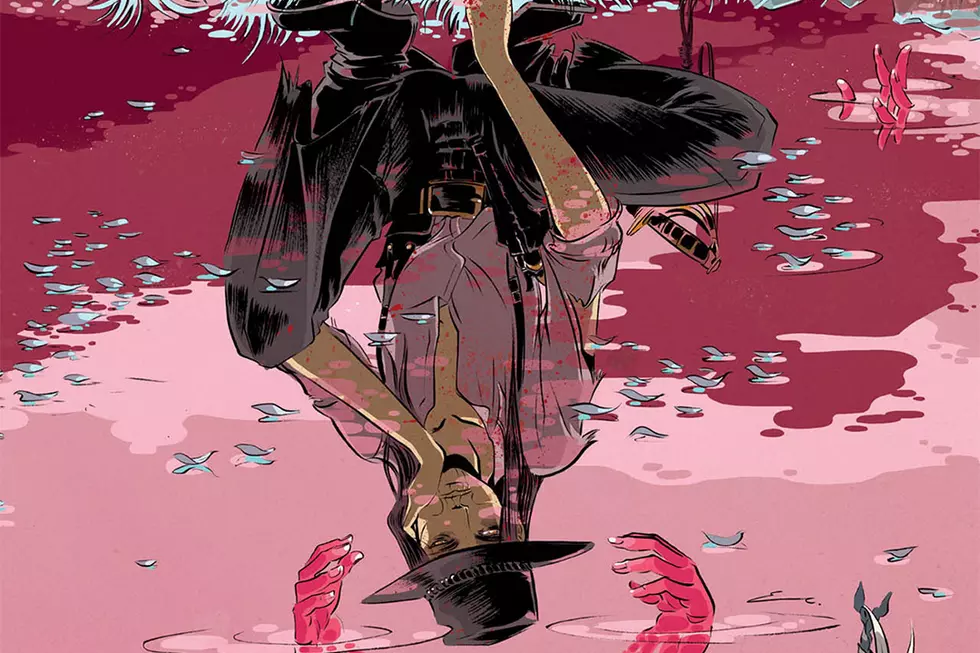
![Bad Girls Do It Well: The ‘Bitch Planet’ Mixtape [Music Week]](http://townsquare.media/site/622/files/2017/01/Bitch-Planet-Featured.jpg?w=980&q=75)
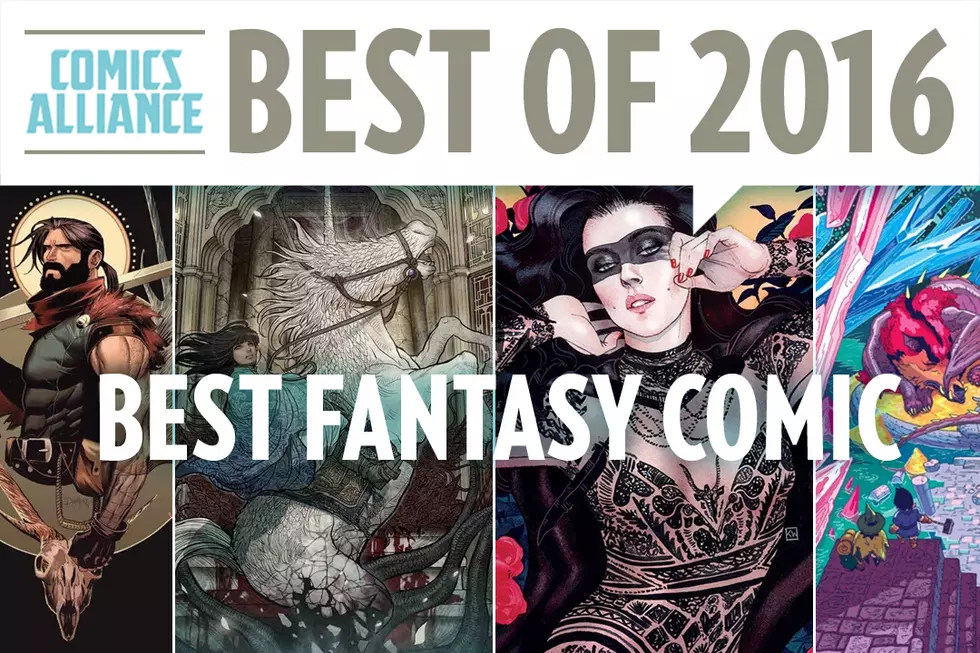
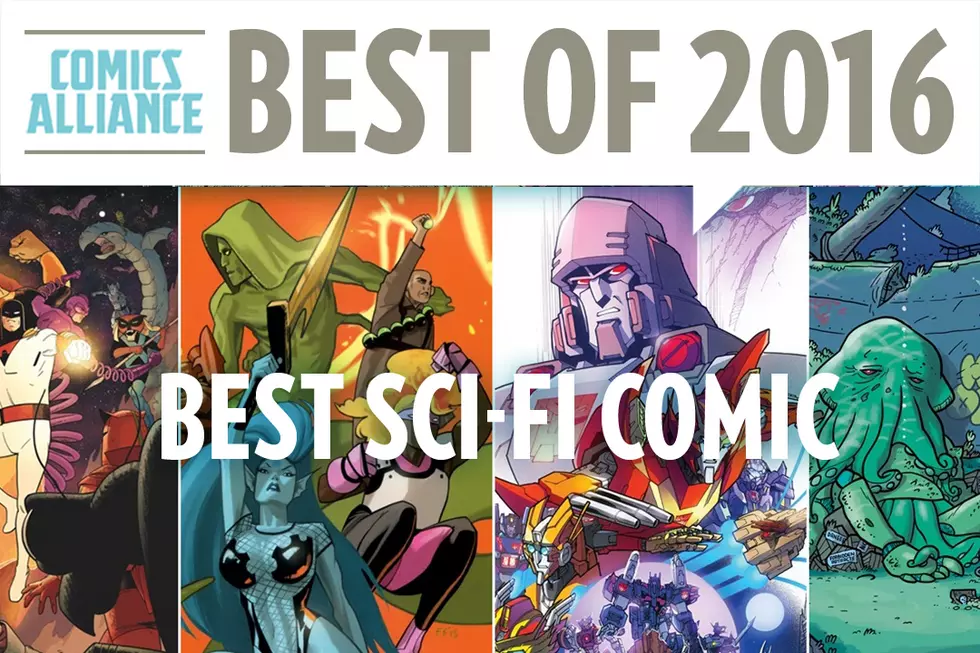
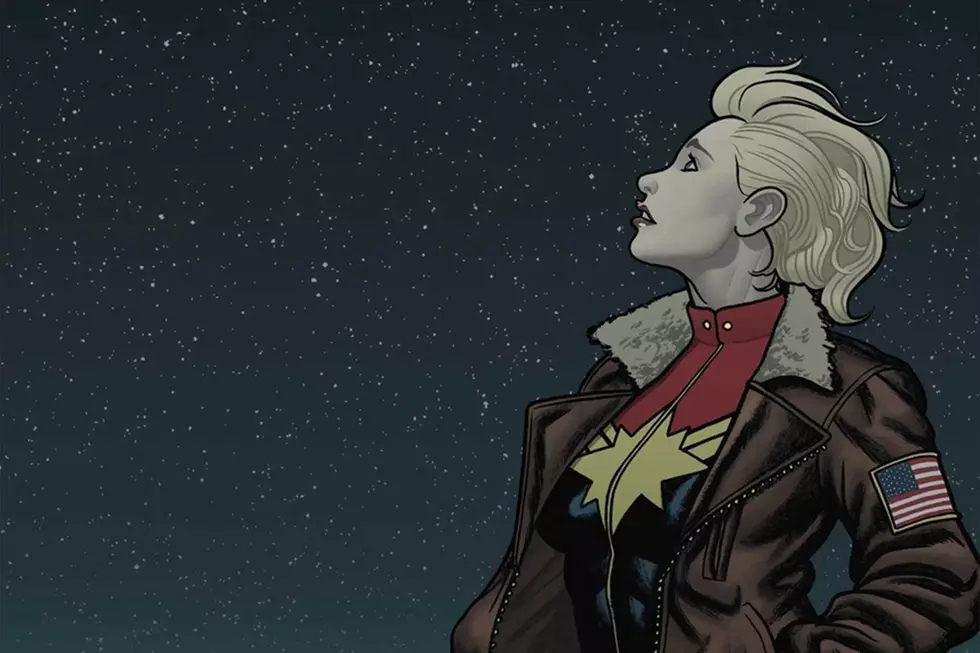

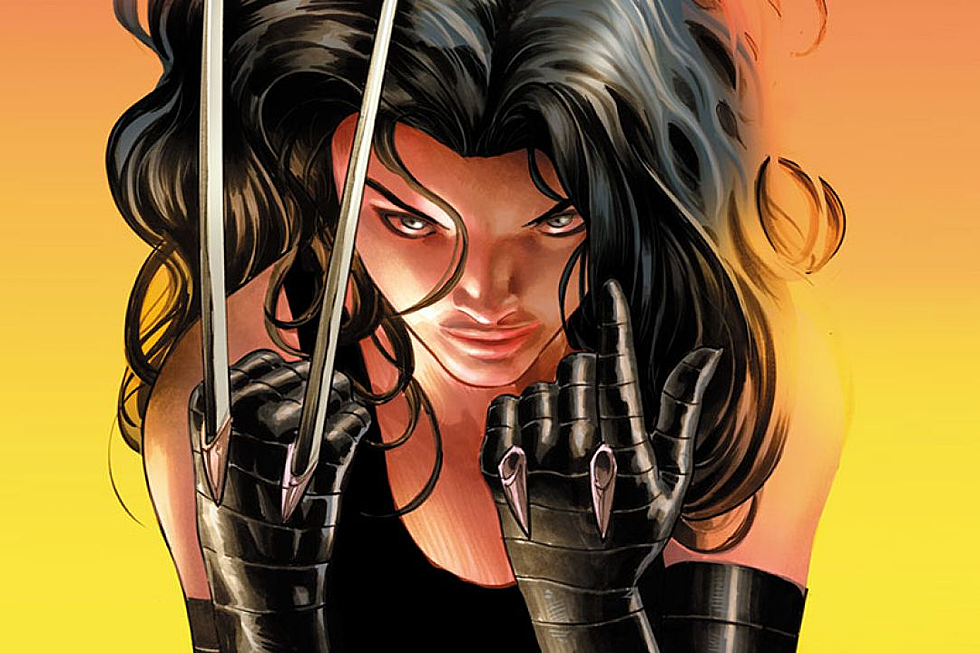
![All The NYCC 2016 Comic Toy and Collectible Exclusives: What’s There and Where to Get It [NYCC 2016]](http://townsquare.media/site/622/files/2016/09/nyccxcusiv.jpg?w=980&q=75)
